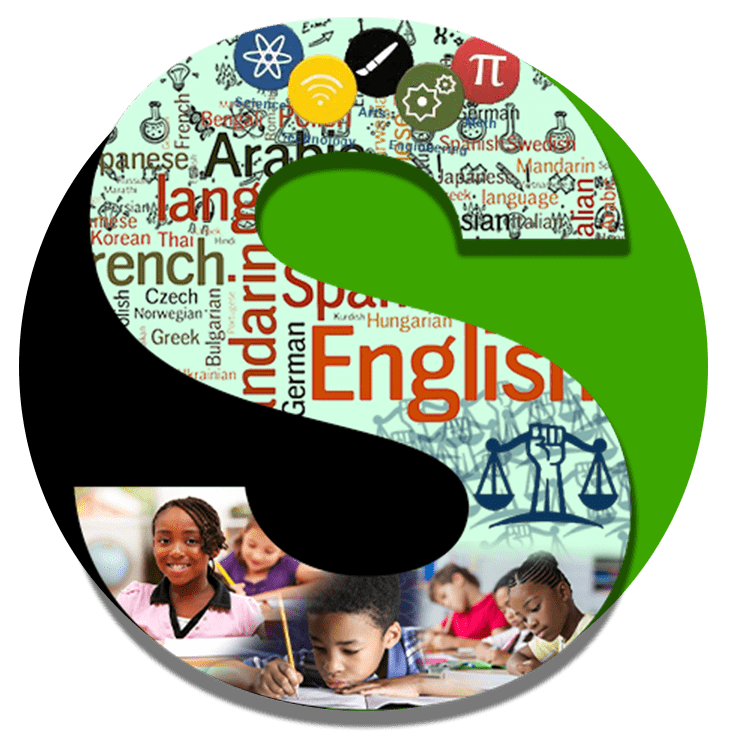Education has evolved significantly from the 1960s-1980s to the present day. This shift in educational focus highlights the transition from the traditional emphasis on the “Three Rs” (Reading, wRiting, aRithmetic) to the integration of the “Three Cs” (Coding, Critical thinking, Collaboration). As a young student at Rawson Elementary School in Hartford, CT I remember my teachers enforcing the need to learn and understand these disciplines as they ensure that in doing so we would be able to secure a brighter future and better careers. For the most part that was true.
However, fast forward 50 years later and the world has changed dramatically in every way, especially in the areas of technology and in the way that we interact with each other. Fifty years ago people who dated one another, were either introduced by a friend or you met someone face-to-face and found attraction. Today the same process of attraction is done through apps and online dating sites. How we interact has changed, which means that how we learn must evolve as well in order to stay relevant to the times in which we live. There is a group that believes that the Three Rs should be altogether eliminated. This blog will touch on why it is so important to bridge the gap between these two educational approaches and how that transition will effectively take place.
The Three Rs – Reading, writing, and arithmetic – have played a central role in education for centuries. These fundamental skills have shaped societies by enabling effective communication, comprehension, and problem-solving. Reading enhances literacy, enabling individuals to acquire knowledge, think critically, and express themselves. Writing allows for the conveyance of ideas, fosters creativity, and promotes effective communication. Arithmetic provides a foundation for logical thinking, quantitative reasoning, and problem-solving. The Three Rs have laid the groundwork for education and cannot be completely abandoned as they form the basis for educational progression and societal advancement.
The Emergence of the Three Cs
However, as we transition to the 21st century, the emergence of the Three Cs – Coding, Critical thinking, Collaboration – reflects the changing needs of our technologically advanced and interconnected world. Coding equips students with programming knowledge and computational thinking, empowering them with problem-solving abilities relevant in various domains. Critical thinking instills the capacity to analyze information, evaluate arguments, and make informed decisions. Collaboration, in addition to fostering teamwork and effective communication, plays a significant role in developing emotional intelligence.
In our present day, emotional intelligence is more vital than ever. As technology continues to shape our lives, our interactions with others increasingly occur through screens and devices, often devoid of emotional cues. However, effective collaboration relies on understanding and empathizing with the emotions and perspectives of others. Without emotional intelligence, collaboration becomes superficial, and the full potential of teamwork remains unfulfilled.
Emotional intelligence encompasses self-awareness, self-regulation, empathy, and the ability to build and maintain relationships. In a globalized society, where individuals from diverse backgrounds and cultures collaborate, the ability to understand, recognize, and respect others’ emotions and experiences is essential. It fosters inclusivity, promotes effective communication, and enhances problem-solving within collaborative settings.
Moreover, as automation and artificial intelligence continue to advance, the areas where humans thrive are those that require emotional intelligence. Jobs in healthcare, counseling, leadership, and creative fields heavily rely on the ability to connect with others on an emotional level, demonstrating empathy, and effectively collaborating towards shared goals. Thus, the incorporation of collaboration into education, along with the development of emotional intelligence, is paramount in preparing individuals to navigate the complexities of the modern world.
As we adapt to rapid technological advancements and navigate the demands of a globalized society, the integration of the Three Cs into education is essential. Coding, critical thinking, and collaboration provide the foundation for success in various domains, enabling individuals to navigate complex problems, think critically, and work effectively in teams. This integration will empower students to thrive in their careers, adapt to societal changes, and lead fulfilling and meaningful lives.
Bridging the Gap: Integrating the Old with the New
To ensure a well-rounded education, it is imperative that we bridge the gap between the old and the new, integrating the Three Rs with the Three Cs. It would be a mistake to completely abandon the foundational skills provided by the Three Rs. Far too many educators have prioritized the Three Cs to the extent that the Three Rs have been neglected, resulting in students lacking basic literacy and numeracy skills. Without a strong foundation in reading, writing, and arithmetic, students may struggle to comprehend complex texts, effectively communicate their thoughts, or solve problems that require a solid understanding of mathematical concepts.
However, just as we cannot ignore the vast technological advancements being made in our world, we must also recognize the importance of the Three Cs. The development of coding, critical thinking, and collaboration skills is a necessity in order for today’s students to navigate the challenges and opportunities of the 21st century. These skills are demanded in the modern job market and essential for success in a rapidly evolving society.
In this ever-changing landscape, it is crucial that we approach education with maturity, understanding that both the Three Rs and the Three Cs have a place in our curriculum. We should not see these approaches as mutually exclusive, but rather as complementary components that work in synergy to foster well-rounded individuals. By integrating the old and the new, we can equip students with a comprehensive skill set that prepares them for the demands of the digital age while also ensuring they possess the literacy and numeracy skills necessary for effective communication and problem-solving.
Integrating the Three Rs with the Three Cs requires a balanced approach. Reading and writing should not be dismissed as outdated or irrelevant, but rather enhanced through the use of technology. For example, students can engage in online forums and collaborative writing projects that develop their reading comprehension and writing skills while embracing digital platforms. Mathematics should be taught alongside coding to provide a well-rounded understanding of logical reasoning and problem-solving. Critical thinking should be nurtured in all subjects, encouraging students to analyze, evaluate, and synthesize information, both in print and digital formats. Collaboration should be integrated into various activities and projects, fostering teamwork, effective communication, and empathy.
By bridging the gap and integrating the old with the new, we can provide our students with a high-quality education that leverages the strengths of both approaches. This requires collaboration among educators, policymakers, and stakeholders in education. It necessitates professional development opportunities for teachers to incorporate new teaching methods and technology into their classrooms while still prioritizing the foundational skills of the Three Rs. It requires flexibility in our curriculum to accommodate new approaches without sacrificing the essential skills that have stood the test of time.
Embracing the Future: Integrating the Three Cs and Three Rs in Education
The time has come for a paradigm shift in education, where the Three Cs and Three Rs work together in perfect harmony. It is not a question of abandoning the Three Rs, but rather of recognizing the immense value and necessity of incorporating the Three Cs into our educational practices. By doing so, we can provide our students with a well-rounded education that equips them with the skills needed to thrive in the modern world.
The urgency of this integration cannot be overstated. As the demands of the job market continue to change rapidly, students must be equipped with coding, critical thinking, and collaboration skills. These skills are no longer optional add-ons but have become fundamental to success in virtually every field. By neglecting to integrate the Three Cs, we risk leaving our students ill-prepared for the challenges that lie ahead.
To make this integration a reality, it is crucial that policymakers, educators, and administrators embrace change and work together. This means providing teachers with the necessary training and support to effectively teach the Three Cs. It means introducing curriculum reforms that prioritize these skills. And it means investing in the technological infrastructure that allows for their seamless integration.
In the end, it is the responsibility of all stakeholders in education to ensure that the Three Cs and Three Rs coexist harmoniously in our classrooms. By doing so, we will create a generation of students who are not only proficient in reading, writing, and arithmetic but are also adept at problem-solving, collaborating, and navigating the complexities of the digital age. Let us embrace this new direction, facilitating the synthesis of old and new, and let us prepare our students for a future that demands nothing less than excellence.
Dr. Aaron Lewis, January 8, 2024

